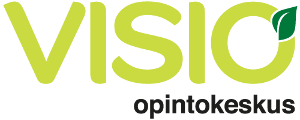Immigration is an undeniable reality. Regardless of shifting immigration policies, Finland is becoming more diverse every year. With this comes the need not only to manage integration but also to support newly arrived individuals as they navigate new cultural landscapes and seek a sense of belonging. While integration efforts typically focus on language acquisition, education, employment, and social orientation, deeply personal and profoundly social aspects—such as belonging and safety—are often overlooked. Creating spaces for open dialogue on these topics is essential to fostering empowerment and mutual understanding.
The Redesign Belonging Project
Since autumn 2024, Visio has been part of the Redesign Belonging (ReBel), a European Commission-financed initiative that aims to enhance belonging and participation among immigrant women in Europe through design and co-creation. Over the course of the autumn, Visio’s Maia and Magdalena facilitated 14 dialogue workshops and, in collaboration with Laurea University of Applied Sciences, conducted three Design Jam sessions in South Finland. These workshops, organized in partnership with third-sector organizations supporting immigrants, engaged over 200 participants—most of whom have lived in Finland for over five years—to share their experiences and perspectives on life in Finland.
While the workshops were primarily intended as data collection for the project’s later stages we quickly realized they served a greater purpose. Discussions centred on themes like (non)belonging, safety, education. and employment, yet participants were also encouraged to raise issues most relevant to them. This openness fostered an environment where unique stories emerged, collective understanding deepened, and individual empowerment grew.
While the primary aim of the workshops was data collection for the project’s later stages—specifically to identify challenges to belonging to be solved through an ongoing open design call—we quickly realized their significance went far beyond that…
The hidden value of dialogue workshops
By creating a safe and welcoming atmosphere, the workshops allowed for vulnerability and the sharing of stories that might otherwise remain unheard. We witnessed laughter and gratitude, frustration and tears, deep empathy and profound moments of connection. In workshops where participants were already part of an established group, discussions helped strengthen their existing bonds. In others, where individuals were meeting for the first time, the workshops became empowering spaces for networking and solidarity.
Dialogue workshops were not just about gathering insights—they became spaces of mutual support. Discussions revolved around themes of (non)belonging, safety, education, and employment, but we emphasized that participants should be free to discuss topics and experiences they deemed important. This openness fostered a space where unique stories emerged, collective understanding deepened, and individual empowerment flourished.
We were deeply moved by the energy in these sessions: the personal insights shared, the empathy exchanged, and the bonds formed. Participants not only reflected on their own journeys but also supported one another, offering comfort, advice, and new perspectives.
By creating a safe and welcoming atmosphere, the workshops allowed for vulnerability and the sharing of stories that might otherwise remain unheard. We witnessed laughter and gratitude, frustration and tears, deep empathy and profound moments of connection. In workshops where participants were already part of an established group, discussions helped strengthen their existing bonds. In others, where individuals were meeting for the first time, the workshops became empowering liminal spaces for networking and solidarity.
No universal recipe for engagement and participation
Not every workshop unfolded as planned. Some sessions felt more dynamic and open than others, with varying levels of participation and openness. Some individuals chose to observe rather than contribute, and in certain cases, despite the efforts of facilitators and group leaders, discussions remained surface-level. We learned that many factors influence engagement—some beyond our control. These include the relevance of topics to participants’ lived experiences, reasons for migration cultural and linguistic backgrounds, previous experiences with group discussions, group dynamics, and even the alignment of the workshop with the host organization’s main objectives. Additionally, as facilitators, we often engaged with groups previously unknown to us, making it challenging to establish trust within the limited timeframe of a single workshop.
I have to admit that at times, when faced with project requirements to ensure sufficient participation, instances of non-engagement felt frustrating—almost like a failure in research design or facilitation. But these moments were valuable lessons in humility. They reminded me of my own position as a facilitator—a young-ish, middle-class white woman from the EU—and the power dynamics that inevitably shape qualitative research.
In line with anti-racist approaches, we cannot simply extract knowledge from participants, especially not through imposed power structures. While we believe the workshops were beneficial for most participants, power imbalances were always present, hindering the flow of the dialogue and reproduction of trust. On the other hand, participants were not powerless: ethnographic and qualitative research is inherently co-produced; participants thus hold the power to decide how much they share and with whom. A key aspect of mitigating these imbalances was ensuring participants had a genuine choice—to engage on their own terms or to opt out entirely. We also encouraged self-led discussions and smaller group conversations to allow for more organic engagement.
Yet, no matter how aware we were of these dynamics or how much we worked to address them, we acknowledge that we were still operating within the framework of a colonized integration framework—one that categorizes and collects data on predefined social groups and topics. While we may not have fully succeeded in decolonizing integration or in dismantling all power hierarchies, we do believe we succeeded in creating spaces where people felt heard, respected, and safe. This experience has reinforced for us the importance of inclusive language and communication, principles that will now guide the next stages of the project—where immigrants themselves will actively co-create solutions.
A Call to Fellow Facilitators
To my fellow qualitative researchers: pay attention to what is happening in your workshops, and embrace it: belonging is born through participation. So much valuable knowledge emerges beyond the confines of pre-planned questions and topics. More importantly, invest in relationships—not only with your participants but among them. We have seen a great demand for more permanent structures and spaces that foster co-creation. Making participants feel valued and appreciated—not just as subjects of research but as equal partners in dialogue—does not only improve research outcomes; it fosters belonging in a way that no policy alone can achieve.

Magdalena Kosova
Magdalena currently works as a project worker at Visio with the EU-cofunded ReDesign Belonging Project, where we foster a sense of belonging and participation among migrant women through co-creation. She has a background in academic research (Sociology and Social and Cultural Anthropology) and now pursuits her love for creating inclusive spaces and services.
